The Dark Legacy of David Brandt Berg: A Cult Leader's Manipulation of Faith
The Family International, once deceptively named The Children of God, wasn’t a church. It was a nest of predators, founded in 1968 by the twisted, vile David Berg—a man who used scripture as a shield for his perversions. Behind its fake message of “God’s love,” this cult engineered a worldwide campaign of child grooming, sexual abuse, and psychological enslavement. At its heart was the notorious “Davidito Book”, a grotesque manual of child sexual exploitation that showcased Berg’s obsession with destroying innocence. Karen Zerby, Berg’s so-called “Queen,” carried on his reign of terror after his death, ensuring the abuse didn’t stop but spread like a disease. Together, they and their army of complicit adults created a global machine of suffering that stole childhoods and left survivors shattered. This wasn’t faith. This was ritualized depravity, systematic brainwashing, and a network of demons hiding behind crosses and hymns. The Family’s legacy is one of destroyed families, suicides, and souls scarred beyond recognition. The survivors’ voices reveal the truth: children were raised in a cult that viewed them as objects, indoctrinated to believe abuse was divine, and punished if they resisted. This is more than a cautionary tale—it’s a chilling reminder of how evil wears the mask of holiness and thrives when no one dares to look too closely.
DISTURBING CASESGRIM REALITYABYASSOUR DREADFUL WORLD
7/25/202520 min read
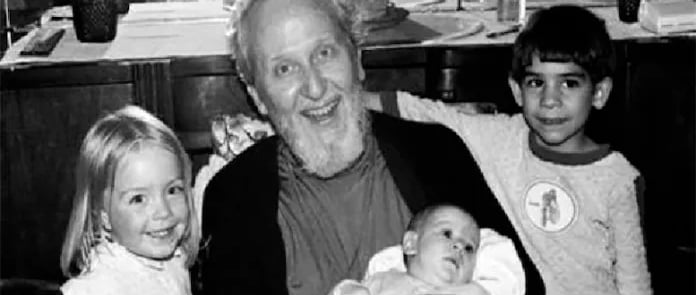

Introduction to Cult Dynamics
In the festering pit of history’s most vile predators, David Brandt Berg sits like the rotting carcass he is, a piece of shit cloaked in the guise of spirituality. He wasn’t a prophet. He wasn’t a teacher. He was a degenerate, a parasitic demon who created The Children of God (later renamed The Family International) as a breeding ground for his sick fantasies. Alongside him slithered Karen Zerby, his so-called “Queen,” a woman equally monstrous who kept the cycle of abuse alive long after his death.
These weren’t misguided believers. They were predatory animals feeding on innocence. Every adult who stayed, who turned their faces away, who whispered “this is God’s plan” as they handed over children to be violated—they are complicit. They are demons in human skin.
Berg’s “doctrine of love” was nothing but a license for rape and torture. He and his inner circle twisted scripture into a weapon, indoctrinating followers to believe that sexual abuse of children was “holy.” Flirty Fishing, Mo Letters, and the cult’s propaganda were dripping with filth, justifying acts that should damn every last one of them. Kids weren’t raised—they were broken, reshaped into victims, their lives offered up to satisfy the disgusting urges of their so-called shepherds.
Karen Zerby didn’t just inherit Berg’s cult—she doubled down on the evil. As a leader, she silenced survivors, destroyed evidence, and expanded the cult’s reach, ensuring the abuse continued worldwide. And the adults? They became Berg’s soldiers of suffering, some too cowardly to speak, others gleefully participating. Their hands are stained with blood, and their souls—if they even exist—are already burning.
This wasn’t a religion. It was a temple of horror, a playground for demons, built on the shattered bodies and minds of children. Berg is dead now, rotting in whatever hell exists for pieces of shit like him, but his victims still carry the weight of what he and his pack of predators did.
In the annals of history’s most depraved cult leaders, few names are as infamous as David Brandt Berg. Founder of The Family International—once known as The Children of God—Berg led a movement drenched in exploitation, sexual violence, and psychological torment. Behind his mask of spirituality and salvation lay a predator whose doctrines left thousands traumatized, their innocence stolen in the name of “love.”Cults represent a disturbing yet fascinating aspect of social organization, characterized by their manipulative practices and psychological control over followers. The fundamental dynamics of cults often revolve around the exploitation of human vulnerabilities, which enable charismatic leaders, such as David Brandt Berg, to wield significant influence. Cults typically thrive on the creation of a closed, insular community that fosters dependency and loyalty among members. This environment allows leaders to manipulate their followers more effortlessly, using an array of psychological tactics that can include fear, isolation, and love-bombing.
One of the most common traits of cults is the presence of a central figure who claims to possess superior knowledge, wisdom, or insight. This individual often uses persuasive language and displays confidence, which can be compelling to potential recruits. Members may be drawn in during periods of personal crisis, seeking solace and guidance, as cults can offer a perceived sense of belonging and purpose. These gatherings frequently provide emotional support, ostensibly catering to the needs of those feeling marginalized or lost. However, it is this initial appeal that conceals the underlying manipulations at play.
Additionally, cult environments often employ tactics to separate members from their previous social circles, effectively isolating individuals and reducing their external influences. This promotes an "us versus them" mentality, which engages followers more deeply and fosters a strong sort of loyalty towards the group and its doctrines. As members grow more embedded in this culture, dissent or questioning becomes increasingly rare, creating a cycle of blind devotion and control. Understanding these dynamics is crucial to comprehending the formidable power cults hold over individuals and the dangerous legacy left by leaders like Berg.
This is the story of how one man’s twisted theology built a global empire of suffering.
The Twisted Rise of David Brandt Berg
David Brandt Berg, known as Moses David, was born on February 18, 1919, in Oakland, California. Growing up in a devout Christian household, Berg was instilled with a sense of purpose early on, eventually pursuing a career in ministry after earning a degree from the University of California. His early ministry and missionary work laid the groundwork for what would later become the controversial movement known as The Family International, initially founded under the name The Children of God.
The socio-political landscape of the late 1960s played a significant role in Berg's rise to prominence. As counter-cultural movements began to take root in America, many young people were disillusioned with traditional societal norms, seeking alternative formulations of spirituality and community. Berg seized this opportunity, positioning himself as a voice for a new generation yearning for connection and meaning. He explored radical interpretations of Christian doctrine, which appealed to those seeking liberation from the constraints of conventional religious practices.
Berg's charisma and persuasive abilities allowed him to generate a devoted following. He often presented himself as a prophet, claiming direct communication with God, which reinforced his authority and attracted individuals searching for a deeper spiritual experience. The Family International's early teachings emphasized a communal lifestyle, which encouraged followers to live together in shared spaces, distribute resources among themselves, and actively evangelize. This countercultural community provided many adherents with a sense of belonging and purpose during an era marked by societal turbulence and personal disillusionment.
Through innovative recruitment strategies, Berg was able to cultivate a dedicated base of followers, enabling The Family International to grow rapidly. His teachings resonated with the spiritual seekers of the time, who were eager for alternative perspectives that diverged from mainstream religious ideologies. Ultimately, Berg’s rise was characterized by a complex interplay of personal ambition and the broader cultural currents that fueled the appeal of his movement.
Disturbing Theology: God’s Love as a Weapon
David Brandt Berg, the founder of The Children of God, crafted a theology that manipulated the concept of divine love to serve his own interests. Central to his teachings was the perverse notion that God's love condoned and even required of his followers a readiness to engage in exploitative behaviors. Berg presented an image of a loving God who desired intimacy with humanity, but he re-framed that love as a tool for obedience and submission, which left many followers vulnerable to manipulation and abuse.
In 1968, Berg began preaching to disillusioned youth during the counterculture revolution. But it wasn’t long before his so-called spiritual guidance devolved into something monstrous.
Through a series of writings called Mo Letters, Berg justified sexual activity between adults and children as “sacred love.” Followers were encouraged to abandon all societal morals and embrace a warped version of freedom where nothing was taboo. He wrote that denying a child the “gift of touch” was sinful—a grotesque manipulation that would haunt survivors for decades.
Children were indoctrinated from birth to see their bodies not as their own but as offerings for the collective. One of the key tenets of Berg's doctrine was the concept of “free love,” which he claimed was a higher expression of God's love. However, this doctrine effectively advocated for sexual relations without regard to conventional morality, thereby facilitating an environment where exploitation could thrive. The normalization of sexual interactions within the community blurred the lines of consent and coercion. Followers were taught that engaging in such acts could strengthen their relationship with God, thus maximizing Berg's control over their lives by intertwining spirituality with physical actions.
Berg further weaponized the idea of unconditional love by instilling a sense of guilt and shame among those who questioned his authority or strayed from his teachings. He posited that challenges to his leadership were manifestations of a lack of faith, thereby shaming followers into compliance. This psychological manipulation was steeped in a distorted interpretation of scriptural passages, resulting in a theology that prioritized submission to Berg over individual autonomy.
In this way, Berg's teachings not only fostered an environment of obedience but also cultivated a culture where the fundamental understanding of love was twisted into a means of oppression. Followers, believing they were acting following divine will, became increasingly isolated from external perspectives that might challenge this abusive framework. Ultimately, the legacy of Berg’s manipulative theology serves as a stark reminder of how faith can be distorted to justify unspeakable acts under the guise of divine love.
A Childhood Stolen: Accounts of Systematic Abuse
For children born into the cult, childhood was a living nightmare. Survivors recount how they were forced to watch adults engage in sexual acts as “education.” From as young as toddlers, they were subjected to inappropriate touching and coerced into participating in acts they could not comprehend.
Punishments for resistance were severe. Some were locked in dark rooms, starved, or beaten until they “submitted.” Others were isolated from their parents for questioning the abuse, told that they risked eternal damnation if they refused to comply.
Perhaps most disturbing of all were the “sharing nights,” where children were passed around like property among adult members in rituals designed to break their sense of self.
Exploitation and Abuse: The Victims' Stories
The experiences of individuals entangled in David Brandt Berg's cult illustrate a troubling legacy of manipulation and abuse. Many who fell under his influence recount harrowing tales that reveal the depths of psychological and physical exploitation they endured. These accounts provide critical insights into the systematic ways in which Berg exercised control over his followers, often using faith as a weapon to justify his actions.
Survivors have described how their lives were irrevocably altered—some were coerced into sexual relationships, often under the guise of spiritual obligation. This breach of trust not only left deep emotional scars but also affected their views on personal relationships and intimacy long after their departure from the cult. Victims recount events where love and affection were conditioned on compliance, leading to an environment steeped in fear and manipulation. Many were made to feel as though dissenting thoughts or concerns were acts against their faith, further entrenching their entrapment.
The psychological abuse was equally damaging. Survivors report a pervasive atmosphere of guilt and shame, fostered by Berg's teachings, which often criticized individual autonomy. As a result, many faced long-term mental health challenges, including depression and anxiety, stemming from their experiences within the cult. The insidious nature of these teachings caused individuals to self-doubt and question their worth, impacting many areas of their lives even after leaving the group.
Despite these daunting experiences, numerous survivors have shown remarkable resilience. They have bravely come forward to share their stories, contributing to a growing awareness of the dangers of such manipulative religious environments. These testimonies not only serve as a platform for healing but also as vital warnings for others vulnerable to similar forms of exploitation. Through their courage, victims highlight the necessity of understanding and acknowledging the profound impact of cult-like organizations on individuals and their communities.
The Mechanics of Control: Psychological Manipulation in The Family International
David Brandt Berg, the founder of The Family International, employed a myriad of psychological tactics to establish and maintain his dominance over followers. At the core of his strategy was the manipulation of faith, which not only reinforced loyalty but also fostered an environment of dependency among members. Central to this manipulation were methods such as isolation, fear, and reward systems, all meticulously designed to control thinking and behavior.
Isolation played a crucial role in Berg’s system, as he encouraged followers to distance themselves from external relationships. By isolating members from families and friends outside the cult, Berg effectively created a bubble wherein social connections were limited to those within The Family International. This isolation was not merely physical; it extended to emotional dependency, wherein members began to rely solely on the group for validation and guidance. The outside world was consistently portrayed as dangerous and corrupt, thus deepening the members’ commitment to the community and its beliefs.
Fear was another potent tool in Berg's arsenal. By instilling the belief that dissent equated to spiritual failure or even eternal damnation, he was able to silence potential critics within the ranks. The constant threat of punishment—be it social ostracism or dire spiritual consequences—ensured that obedience remained paramount. This atmosphere of fear discouraged questioning and fostered a culture of silence, effectively quelling any doubts or dissenting thoughts among followers.
Moreover, reward systems further contributed to the mechanics of control. Berg incentivizes obedience with promises of spiritual rewards, kinship, and a sense of purpose. Members who conformed to the expected behaviors were often publicly recognized, reinforcing the desire to comply while simultaneously alienating those who strayed from the prescribed path. This created a strong sense of belonging within the community while simultaneously alienating non-conformists, ensuring that loyalty to Berg remained unchallenged.
By intertwining isolation, fear, and reward, Berg cultivated an environment where obedience and groupthink flourished, perpetuating a cycle of compliance and control. The ramifications of these psychological tactics extended far beyond individual members, leaving an indelible mark on the collective psyche of The Family International.
Legal Battles and Public Outcry
Throughout its existence, The Family International, originally founded by David Brandt Berg as The Children of God, has faced extensive legal challenges that have shaped its reputation and operations. In particular, allegations of child abuse and exploitation directed at both Berg and the organization have sparked significant public outrage and scrutiny. These serious accusations emerged prominently in the late 1970s and continued into the 1990s, when former members began speaking out about their traumatic experiences.
The legal battles surrounding The Family International intensified after various governments, particularly in the United States and Europe, initiated investigations into the organization's practices. Reports of sexual abuse involving minors and the manipulation of vulnerable individuals were alarming, leading to a heightened sense of urgency among child protection advocates. As revelations unfolded, numerous lawsuits were filed against the organization, further complicating its public image and operational legitimacy.
Media portrayal of The Family International has mainly leaned towards a negative lens, often framing the group as a cult associated with misdeeds and manipulation. Investigative journalism played a crucial role in bringing the organization’s alleged wrongdoings to light, contributing to a growing public awareness of the risks posed by cultist groups like Berg's. Documentaries and news articles have depicted the internal culture of fear, deceit, and control generated by the leadership, which facilitated widespread withdrawal from mainstream society.
Importantly, the public response to these issues demonstrated a broader societal concern over the safety and well-being of individuals within such organizations. Advocacy groups emerged, aiming to reform the laws surrounding cults and protect individuals from manipulation and exploitation. These external pressures had a significant impact on The Family International, forcing it to reassess its operations and adopt measures to mitigate potential legal repercussions. The legacy of David Brandt Berg is, therefore, continually intertwined with the aftermath of these legal challenges and public outcry.
The Shepherd and His Slaughterhouse
Berg didn’t build a church; he built a slaughterhouse for souls. He recruited the vulnerable—hippies, runaways, and seekers—promising love and community. But beneath the banner of peace, Berg’s doctrine seethed with rot. He declared that sex was divine worship, erasing every boundary between sacred and profane.
He coined the term “Flirty Fishing”—sending women and teenage girls into bars and streets to seduce men into joining the cult. These “fishes” weren’t converts. They were prey. Their bodies were offerings to the God of Berg’s lust.
But the true horror lurked in the nurseries. Babies born into the cult were raised on scripture and suffering. They were taught from infancy that their bodies existed to please others—trained in “sharing” as an act of worship.
Survivors recount the moments with voices trembling: tiny hands forced into acts they didn’t understand, praise songs sung over groaning beds, children too young to read yet broken by carnal rituals in the name of God.
The Rot of Davidito
The darkest chapter in Berg’s legacy oozes from the Davidito Book. Davidito, Berg’s “chosen heir,” became the poster child for his gospel of abuse. The child was documented in photographs and writings being sexually exploited by adults—his every milestone perverted into pornography.
As Davidito grew, he became erratic, angry, and violent—a child raised in hellfire, now carrying it within himself. At 29, he murdered one of his former nannies, stabbing her to death in a frenzy, before ending his own life. His suicide note screamed the truth: the abuse wasn’t over. It lived in him like a parasite, and now it wanted blood.
Life With Grandpa: A Puppet Show from Hell
In the mid-1980s, grainy VHS tapes of Life With Grandpa began showing up unmarked in mailboxes across suburban America. On the surface, it looked like a harmless children’s puppet show—felt-covered characters singing moral songs about family and obedience. But behind the saccharine facade lurked something sinister. Survivors claim the series was a covert project tied to The Family International, embedding propaganda and coded messages aimed at grooming young viewers for indoctrination. Some episodes allegedly included flashes of explicit imagery and unsettling monologues delivered in Grandpa’s raspy voice, hinting at the twisted doctrines David Berg pushed on his followers.The Gospel of Decay
In cult compounds worldwide, children were subjected to punishments that blurred into torture. Those who refused Berg’s “love” were beaten with belts, starved, or locked in prayer rooms for days. They called it discipline. The children called it hell.
Filthy mattresses, dark rooms, and bodies too small for the horrors visited upon them became the silent altars of this faith. Survivors describe nights of screams muffled behind hymnals, adult hands probing where no hand should go.
As authorities began to raid cult facilities in the 1980s and 90s, they uncovered what the survivors already knew: this wasn’t a ministry. It was a global trafficking network wrapped in scripture.
Individual Chapters of "Life
Volume 1
The Miracle Ride (PDF)
Three Little Accidents (PDF)
The Angel in the Portuguese Taxi (PDF)
Techi and the Daily Might (PDF)
Telling the Truth (PDF)
Grandpa and Techi Fighting the Devil (PDF)
The Sandbox (PDF)
Eat What Is Set Before You (PDF)
Pray for Grandpa (PDF)
Volume 2
Mommy and the Mosquito (PDF)
The Ragman (PDF)
Not One to Spare (PDF)
Tony the Iceman (PDF)
Abrahim the Gypsy King (PDF)
The Advantage of a Handicap (PDF)
Volume 3
House Inspection (PDF)
Burning Selah Trash (PDF)
Volume 4
The Temple on the Cliff (PDF)
Volume 5
Real Fathers (PDF)
Beauty and the Beast Part 2 (PDF)
The Coward’s Exit
In 1994, Berg died in hiding, bloated, sick, and unpunished. He never faced a courtroom. He never heard the cries of his victims in public. His wife, Karen Zerby, inherited his throne of rot, rebranding the cult as The Family International and scrubbing its history clean. But for those who escaped, there is no rebranding.
Their scars still burn.
Blood-Stained Faith: Final Thoughts
David Berg was no prophet. He was a predator in a preacher’s skin—a parasite who drained the life from hundreds of children and left behind a cult that still exists, still whispers, still hides.
The Family International claims it has “reformed.” But how do you reform a movement built on the bones and screams of the innocent?
For Berg, the grave came too easily. But for his victims, there is no rest. The echoes of their suffering still haunt the world like a psalm of anguish. Davidito's Curse: The Tormented Life and Violent Death of Ricky Rodriguez
He was born into hell and raised as its heir. Davidito, later known as Ricky Rodriguez, was never given a chance at innocence. As the “prince” of The Children of God—later rebranded as The Family International—his body, mind, and soul were forged in the flames of ritualized abuse, until one bloody night in 2005 when he broke free in the only way he knew how.
This is not just a story of cult abuse. It’s a story of rage, revenge, and the legacy of generational trauma so deep it could only end in blood.
The Boy King of the Cult
Ricky Rodriguez was born in Spain in 1975 to Karen Zerby, the wife of cult leader David Berg, and a man chosen solely for his genetics. He was raised to be Berg’s successor—his “Davidito,” the child of prophecy who would lead The Family into its next era.
But his childhood was not one of scripture and love. It was a laboratory of abuse.
In The Davidito Book, a 762-page handbook distributed to cult members in the late 1970s, Berg and Zerby documented Ricky’s upbringing in grotesque detail. They encouraged adults in the cult to “sexually share” with the toddler as part of his education in “God’s love.” Photographs showed naked women touching him, bathing with him, and sleeping beside him. This wasn’t child-rearing—it was systematic grooming, a manual for the sexual exploitation of children.
The images and writings are now considered some of the most horrifying evidence of institutional child abuse ever produced. Survivors of The Family describe Davidito’s childhood as “a pornographic sideshow for the sick fantasies of David Berg.”
A Childhood in Chains
As Ricky grew, so did his resentment. By his teenage years, he had begun to resist the teachings forced upon him. In punishment, he was beaten, isolated, and subjected to “prayer therapy”—a euphemism for mental torture.
But even as he pulled away emotionally, his body remained a prisoner. Stories from former cult members suggest he was forced into sexual encounters with other children and adults well into adolescence.
When he was allowed to leave the cult in his early 20s, Ricky was a shell of a man. He tried to assimilate into the outside world—working menial jobs, forming relationships, and even marrying. But the ghosts of his childhood clung to him. Nightmares, depression, and uncontrollable anger followed him everywhere.
The Kill List
By 2005, Ricky Rodriguez was 29 years old and deeply unwell. He began documenting his life in videos, speaking about his childhood abuse and his desire for vengeance.
In one chilling clip, he holds up a knife and a gun and says:
“They killed my soul. I have to kill their bodies. They need to pay.”
Ricky’s rage focused on his mother, Karen Zerby, and other leaders of The Family, whom he believed orchestrated and condoned his abuse. He created a “kill list” of those he intended to execute.
But he would never reach his mother.
The Blood of Retribution
On January 7, 2005, Ricky invited Angela Smith—his former nanny and one of his alleged abusers—over to his apartment in Arizona under the guise of reconnecting.
Once inside, Ricky confronted her about the abuse she inflicted on him as a child. Neighbors later reported hearing screams and crashes from his apartment. Angela tried to flee, but Ricky stabbed her repeatedly in the chest and face, leaving her almost unrecognizable.
He then fled the scene, drove across the desert, and called his wife one last time. In the voicemail, his voice is eerily calm:
“I couldn’t let her live after what she did… This is the only way I know to make them feel it. I love you. Goodbye.”
Later that night, Ricky pulled into a remote parking lot and shot himself in the head.
A Legacy of Rot
Ricky Rodriguez’s death was the culmination of decades of systemic abuse by The Family International. Though his mother and others were never prosecuted, Ricky’s murder-suicide shone a harsh light on the cult’s history.
The FBI launched an investigation, and media outlets worldwide reported on The Family’s crimes. Survivors came forward in droves, sharing their stories of rape, beatings, and psychological torture.
But many leaders—including Karen Zerby—remain free, their crimes obscured by rebranding and relocation. The Aftermath: Legacy of Trauma and Healing
The teachings and practices of David Brandt Berg, the leader of The Children of God, have left a complex legacy characterized by profound trauma for many former members. The psychological, emotional, and spiritual impacts of being part of a high-control group can linger long after individuals have departed from the cult. Survivors often grapple with a range of issues, including feelings of isolation, guilt, and confusion as they attempt to reconstruct their identities outside the controlling environment created by Berg. This process of healing is not linear and requires substantial support.
A crucial aspect of recovery for former members involves establishing strong support systems. Peer support groups and counseling specifically tailored to those who have experienced cult involvement can provide safe spaces for individuals to share their experiences and learn from one another. Many survivors find solace and understanding amongst others who have navigated similar paths, reinforcing that they are not alone in their struggles. Furthermore, some organizations have been established to offer professional mental health resources and advocacy to former cult members, aiding in their journey towards healing.
The influence of Berg’s teachings continues to reverberate within broader societal contexts. Education on cult dynamics, the psychological manipulation techniques applied by leaders, and the specific vulnerabilities that make individuals susceptible to such groups are vital for preventing future exploitation. By increasing public awareness and understanding of these dynamics, society can take proactive steps to protect individuals from falling into similar traps. Cult recovery education is imperative, as it equips individuals and communities with the knowledge required to identify manipulative behaviors, thereby fostering a resilient society that safeguards its members against spiritual and psychological exploitation.
In conclusion, the aftermath of David Brandt Berg's leadership highlights the necessity for continued healing, support, and education. By emphasizing these elements, we can mitigate the long-lasting trauma associated with cult experiences and empower survivors to reclaim their lives.
Karen Zerby: The Vile Queen of Child Abuse Who Turned Faith Into a Flesh Market
Karen Zerby isn’t just complicit—she’s a predator in her own right. After David Berg died, she slithered into power like a maggot queen taking her place on a throne of decay. As “Mama Maria”, she kept the cult alive, feeding off the innocence of children, perpetuating the same sick rituals her lover had begun. She taught women to weaponize their bodies as recruitment tools, normalized child abuse as “divine love,” and silenced survivors with threats, lies, and brainwashing.
She isn’t misunderstood. She isn’t a victim. Zerby is a piece of shit who orchestrated the destruction of thousands of lives, all while quoting scripture. Behind her smile was rot. Behind her prayers were chains. And for every child groomed, every family destroyed, every soul broken—she deserves no peace. Karen Zerby should rest in piss.
Propaganda Over Faith
The Family International’s site paints a serene, communal picture—kids in happy classrooms, smiling siblings, heartfelt fellowship. But if you dig through the gleaming veneer, you’ll find a grotesque whitewash of systemic abuse and manipulation.
While the site emphasizes “gospel love” and end‑time readiness, it omits Berg’s actual teachings, like Flirty Fishing, the 1970s decree letting women, including teens, prey on lonely men as “witnesses” (OAC+9Wikipedia+9CBS News+9.) The church’s glossy images mask decades of child sexual exploitation and indoctrination, sugar‑coated as “spiritual outreach.”
Leaders Without Shame
David Berg, known as “Moses David” or “Father David,” is presented as a prophetic founder. What the website downplays is his real identity: a piece of shit predator hiding behind scripture—he created the Davidito Book, a manual for toddler sexual indoctrination, and led a cult that treated children as ritual tools.
Then there’s Karen Zerby—“Queen Maria” to followers—whose public image is polished, sanitized, and sanitized some more. But behind the façade lies a continuation of Berg’s legacy: child abuse, grooming, and systemic repression. In private, she approved and protected the cult’s sexual violence; publicly, she plays the doting grandmother. Wikipedia+1 Wikipedia+1.
Psychological Control Dressed as Doctrine
The site emphasizes communal living and spiritual warfare, but forgets to mention the brutal tactics used:
Love-bombing followed by isolation, fear, and guilt to keep members compliant.
Mind control rituals and spiritual reinforcement, branded as “new weapons” to shame doubters.
Propaganda disguised as scripture—nearly 3,000 Mo Letters guiding every aspect of life, including how to rationalize incest, sexual abuse, and rape, Wikipedia.
Broken Promises, Broken Lives
While the site brags about descendant branches and global reach, it hides the real human toll:
Thousands of survivors report lasting trauma, shattered identities, and cycles of mental illness, though the website calls it “transformation.”
The “zero-tolerance” policy for adult-minor sex, introduced in 1989, is framed as proof of reform, but ignores that the policy was reactionary, implemented only after decades of sanctioned abuse, CBS News.
The Family International’s online presence is nothing more than a polished crime scene, where propaganda hides predatory horror. David Berg and Karen Zerby aren’t spiritual guides—they’re perverts whose self-righteous shield masked the fact: they ran a sexual abuse factory under the guise of religion.
Their website is a testament to how easily evil adapts—it repackages crimes against children as “missions of love.” Don’t fall for it. Evil isn’t spiritual just because it wears a cross.
Final Thoughts: Shadows That Never Fade
The Family International was never just a misguided religious group—it was a parasitic organism feeding off innocence and trust. Life With Grandpa became a grotesque symbol of this corruption, a puppet show masking the indoctrination and abuse happening behind closed doors. Beneath the surface of playful characters and moral lessons was the same sickness that infected David Berg’s entire movement.
Ricky Rodriguez’s life and tragic end are the most damning evidence of the horrors this cult unleashed. Groomed from birth to embody Berg’s twisted vision, Ricky was a child trapped in a machine of manipulation, exploitation, and spiritual warfare. His desperate act of revenge and suicide wasn’t just a personal collapse—it was the final, horrifying product of years of psychological torture and systemic abuse.
Even now, decades later, the scars left by The Family International continue to bleed. Survivors describe shattered identities, stolen childhoods, and the lifelong task of unlearning the lies forced upon them. Berg’s so-called “love” was nothing more than a mask for cruelty, a weapon turned against the most vulnerable.
The story of The Family isn’t locked in old compounds or forgotten VHS tapes—it’s alive in the memories of those who survived. Confronting these truths means staring into the darkest parts of human behavior and asking how such evil could thrive in plain sight.
For every Ricky Rodriguez silenced by despair, countless others are fighting to rebuild their lives. We owe them more than passive remembrance—we owe them action, exposure, and a commitment to ensure predators like Berg never again find refuge in shadows.
Karen Zerby wasn’t just complicit—she was the architect of countless atrocities, a woman who weaponized faith to feast on innocence. As far as we know, she and her pedophile accomplices are still alive, lurking in the shadows and quietly running what remains of The Family International.
SEO Keywords for Blog
Ricky Rodriguez Children of God murder-suicide
Davidito Book cult abuse explained
The Family International dark history
Karen Zerby cult leader son
real-life cult revenge story
Sources
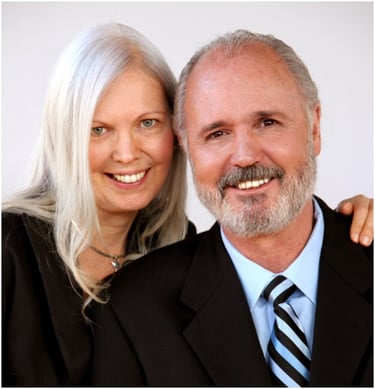
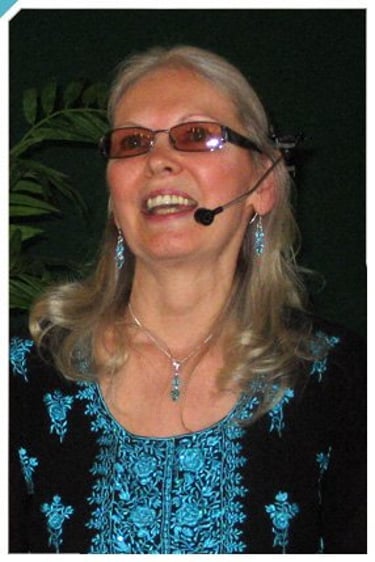
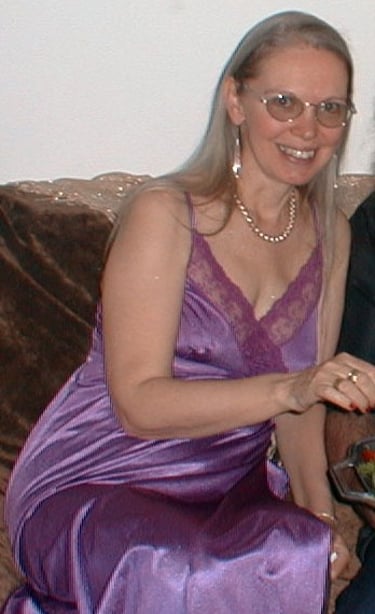



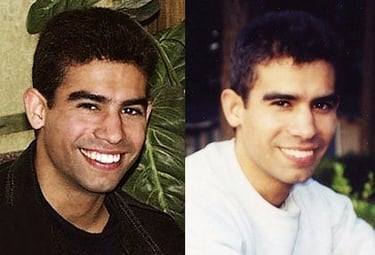
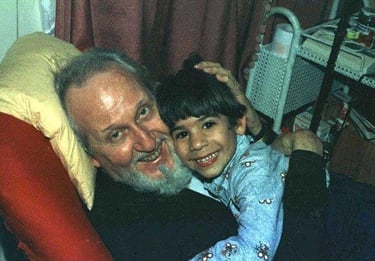
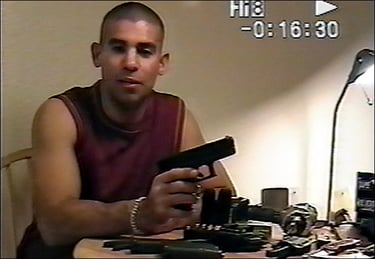
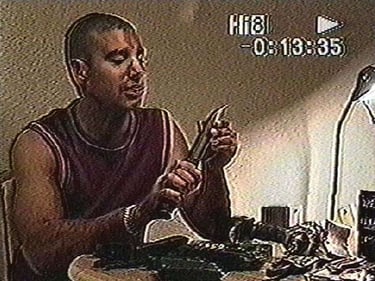
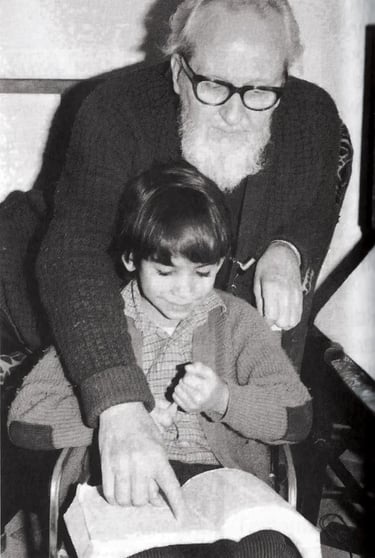





Despair
A dark exploration of societal decay and despair.
Void
+1234567890
© 2025. All rights reserved.
Any comments, business inquiries, ideas, or stories, let us know
